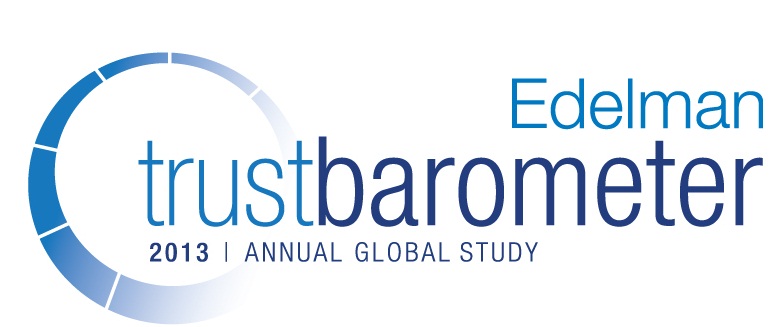My recent presentation to 23 sporting clubs in Australia's national capital, Canberra. The seminar was sponsored by the ACT Government's sports and recreation program.
Sunday, March 10, 2013
Thursday, March 7, 2013
6 Smarter Ways to Market in a Flat Economy
At the recent Content Marketing World Conference US author Jay Baer
unpacked his concept of Youtility: marketing so helpful customers would
be willing to pay for it.
And Youtility is what can make you stand out in a flat economy. Particularly when people have limited money, short attention spans, an overabundance of information and are spoiled for choice.
It used to be salespeople provided information then closed the
sale with customers relying on them for product knowledge. Now their job is to close the sale with savvy customers armed with online research and willing to move on if they feel something is not right.
The
role of the marketer is also transitioning - from hyping products to helping customers
- offering accessible and timely information that will help their customers make decisions and become brand loyalists.
Jay outlined six steps to build a content marketing strategy to set you apart in a tight economy:
- Discover customer needs through market research, keyword search, social chatter etc.
- Map those needs to a specific service or product your organisation has.
- Develop user-friendly information around that product through case studies, tools, tips, apps, videos and other devices.
- Distribute and then market that content through the channels where your customers live.
- Skill your staff to continually come up with information to help customers.
Most importantly recognise that helping customers is a process not a program and marketing
today is a marathon not a sprint.
Other posts:
The age of content is new again
Four ways to drive content marketing
Other posts:
The age of content is new again
Four ways to drive content marketing
Wednesday, March 6, 2013
The Age of Content Is Here (Again)
That's the conclusion from day one of Sydney's Content Marketing World Conference where communicators explored the topic from Australian and US perspectives.
Yes although the term may be recent, content marketing has been around since we were cave dwellers. The fact is we have always shared information with others - passing along knowledge, helping out and warning of danger.
But today organizations face an urgency to provide content to customers, citizens or clients at a time when they are less inclined than ever to pay attention. Unless you provide something that entertains or informs people about issues they need to know or care about, your message blurs into the background noise of life.
That's because:
- All of us suffer information overload. Too many people want our attention and often for their reasons not ours.
- Traditional media models are broke. They are being pushed aside by new communication platforms which arrive with ever faster speed and can be so very distracting.
- People now openly mistrust brands, governments and other sources of traditional information unless they have a positive relationship with them.
So if you want attention, you - or someone you trust - must provide information that genuinely helps your audience, when they need your information not when you choose to deliver it.
Content marketing may not be new but it can be challenging particularity for old school organizations wedded to blasting messages to their communities.
See earlier post.
See earlier post.
Sunday, February 17, 2013
Leave The Boss Behind When It Comes To PR
That's if you believe the results of the Edelman Trust Barometer 2013.
Australian results show only 41% of people find the CEO (or equivalent) credible as a spokesperson. And government officials rank only marginally higher.
Yet most PRs reflexively put forward their top leaders when it comes to communications. That may be counter productive because less than half the people trust them, and even that level of trust is down 8% on 2012 results.
So if the CEO lacks the credibility who could be your communications champions?
Topping the list are academics or experts. 74% of people would believe them. Followed by:
- A technical expert from your organisation (71%)
- A person like yourself (62% and up 31 points from 2012)
- A representative from a non government organisation (62%)
- A financial or industry analyst (57%)
- A regular employee (51%)
- A government official or regulator (47%)
... and sitting at the very bottom of the trust totem is the CEO (41%).
It goes against conventional wisdom for anyone but the CEO to speak on behalf of your organisation. But if your communications struggle to cut through, it may be time to consider someone who enjoys more public respect.
Wednesday, February 6, 2013
Media Beats Out Social in Trust Ratings
 We previously reported the Edelman Trust Barometer 2013 which surveys the institutions and individuals people trust.
We previously reported the Edelman Trust Barometer 2013 which surveys the institutions and individuals people trust. Well ... the latest results for traditional media are surprising and seem to go against prevailing wisdom. For example:
- 83% of the general public trust TV or trust it a great deal
- 78% trust newspapers and radio, with both enjoying exactly the same trust levels
- 75% trust magazines
- 64% trust corporate communications
- 41% of the general public trust Youtube and content sharing or trust it a great deal
- 40% trust blogs
- 38% trust microblogs like Twitter
- 78% of the general public trust search engines or trust them a great deal
- 71% trust news/RSS on the web
Subscribe to:
Posts (Atom)



